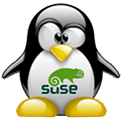NAME
sonar - display a sonar scope
SYNOPSIS
sonar [-ping hosts-or-subnets] [-ping-timeout int] [-delay usecs] [-speed ratio] [-sweep-size ratio] [-font-size points] [-team-a-name string] [-team-b-name string] [-team-a-count int] [-team-b-count int] [-no-dns] [-no-times] [-no-wobble] [-debug] [-fps]
DESCRIPTION
This draws a sonar screen that pings (get it?) the hosts on your local network, and plots their distance (response time) from you. The three rings represent ping times of approximately 2.5, 70 and 2,000 milliseconds respectively.
Alternately, it can run a simulation that doesn’t involve hosts.
OPTIONS
sonar understands the following options:
| -ping hosts-or-subnets | |||||||||||||||
The list of things to ping, separated by commas or spaces.
Elements of this list may be:
| |||||||||||||||
| -ping-timeout int | |||||||||||||||
| The amount of time in milliseconds the program will wait for an answer to a ping. | |||||||||||||||
| -delay int | Delay between frames, in microseconds. Default 20000. | ||||||||||||||
| -speed ratio | |||||||||||||||
| Less than 1 for slower, greater than 1 for faster. Default 1. | |||||||||||||||
| -sweep-size ratio | |||||||||||||||
| How big the glowing sweep area should be. Default 0.3. | |||||||||||||||
| -font-size points | |||||||||||||||
| How large the text should be. Default 10 points. | |||||||||||||||
| -no-wobble | Keep the display stationary instead of very slowly wobbling back and forth. | ||||||||||||||
| -no-dns | Do not attempt to resolve IP addresses to hostnames. | ||||||||||||||
| -no-times | Do not display ping times beneath the host names. | ||||||||||||||
| -team-a-name string | |||||||||||||||
| In simulation mode, the name of team A. | |||||||||||||||
| -team-b-name string | |||||||||||||||
| In simulation mode, the name of team B. | |||||||||||||||
| -team-a-count int | |||||||||||||||
| In simulation mode, the number of bogies on team A. | |||||||||||||||
| -team-b-count int | |||||||||||||||
| In simulation mode, the number of bogies on team B. | |||||||||||||||
| -fps | Display the current frame rate, polygon count, and CPU load. | ||||||||||||||
NOTES
On most Unix systems, this program must be installed as setuid root in order to ping hosts. This is because root privileges are needed to create an ICMP RAW socket. Privileges are disavowed shortly after startup (just after connecting to the X server) so this is believed to be safe:
chown root:root sonar chmod u+s sonar
It is not necessary to make it setuid on MacOS systems, because on MacOS, unprivileged programs can ping by using ICMP DGRAM sockets instead of ICMP RAW.
In ping-mode, the display is a logarithmic scale, calibrated so that the three rings represent ping times of approximately 2.5, 70 and 2,000 milliseconds respectively.
This means that if any the hosts you are pinging take longer than 2 seconds to respond, they won’t show up; and if you are pinging several hosts with very fast response times, they will all appear close to the center of the screen (making their names hard to read.)
SEE ALSO
X(1), xscreensaver(1), ping(8)
COPYRIGHT
Copyright © 2000-2008 by Jamie Zawinski <jwz@jwz.org>
Copyright © 1998 by Stephen Martin. <smartin@canada.com>Permission to use, copy, modify, distribute, and sell this software and its documentation for any purpose is hereby granted without fee, provided that the above copyright notice appear in all copies and that both that copyright notice and this permission notice appear in supporting documentation. No representations are made about the suitability of this software for any purpose. It is provided "as is" without express or implied warranty.
AUTHORS
Stephen Martin <smartin@canada.com>, 3-nov-1998.
Subnet support, etc. added by Jamie Zawinski, 17-Jul-2000.
Rewritten using OpenGL instead of X11 by Jamie Zawinski, 12-Aug-2008.
